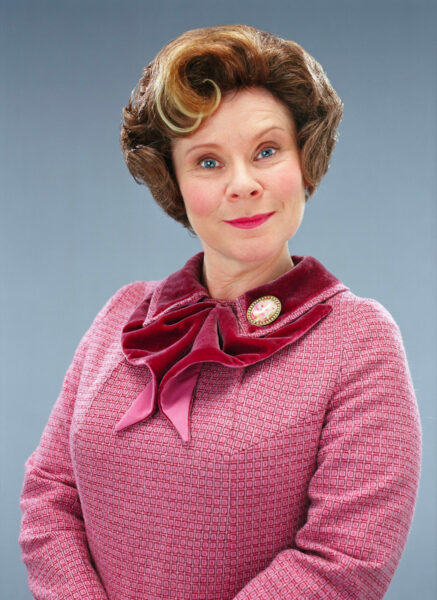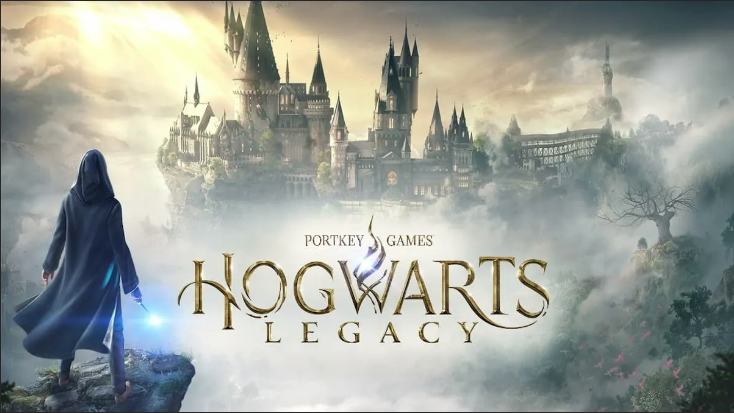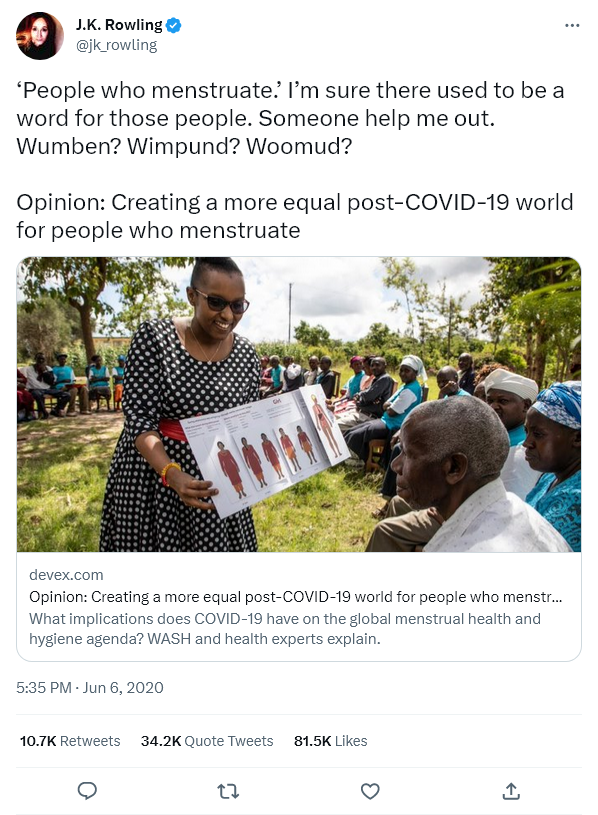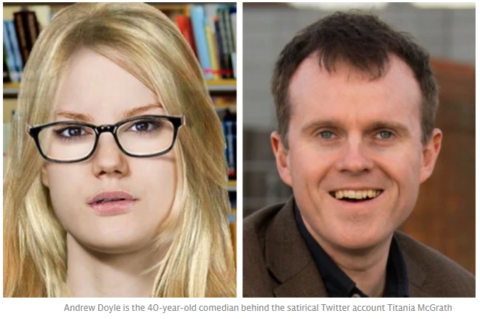If you’d prefer reasoned debate, it will start with a collective realization that mobs can’t do much except make noise. They’re not actually very big, for starters — the number of people who replied to Rowling’s tweet wouldn’t fill most Texas college football stadiums, and reasonable people don’t choose their views by polling the crowd at the Aggies-Longhorns game.
More important, most mobs aren’t committed to the effort beyond flicking a thumb. Institutions that ignore the mob are often astonished at how little difference all the outrage makes to their business — and I’d bet Rowling won’t see much evidence of this controversy in her royalty statements.
The censorious power of Mrs. Grundys always depends on the cooperation of the governed, which is why their regime collapsed the moment the baby boomers shrugged off their finger-wagging. If Rowling provides an unmissable public demonstration that it is safe to ignore the current crop, we can hope others will follow her example, and the dictatorship of the proscriptariat will fall as quickly as it arose.
Megan McArdle writing in the Washington Post, quoted by Ed Driscoll at Instapundit, 2020-01-02.
October 7, 2024
June 4, 2024
J.K. Rowling’s most convincing and true-to-life villain in the Harry Potter stories
I’m with Jon Miltimore on this — J.K. Rowling’s most disturbing and best-written villain isn’t “He Who Must Not Be Named” or any of the other (frankly cardboard-y) magical villains … it’s Dolores Umbridge, a career bureaucrat who could have been drawn from any western civil service senior management position:
Umbridge, portrayed in the films by English actress Imelda Staunton, isn’t some apparition of the underworld or a creature of the Dark Forest. She’s the Senior Undersecretary to the Minister of Magic, the man who runs the government (the Ministry of Magic) in Rowling’s fictional world.
Umbridge wears pink, preaches about “decorum” in a saccharine voice, smiles constantly, and resembles a sweet but stern grandmother. Her intense, unblinking eyes, however, suggest something malevolent lurks beneath. And boy, does it.
“The gently smiling Dolores Umbridge, with her girlish voice, toadlike face, and clutching, stubby fingers, is the greatest make-believe villain to come along since Hannibal Lecter,” horror author Stephen King wrote in a review of Harry Potter and the Order of the Phoenix, the book in which Umbridge is introduced.
Umbridge’s “Desire to Control, to Punish”
What makes Umbridge so evil that King would compare her to Hannibal Lecter, the man widely considered the greatest villain of all time?
I asked myself this question, and I believe the answer lies in the fact that Dolores Umbridge is so real — and in more ways than one.
First, it’s noteworthy that Rowling based Umbridge on an actual person from her past, a teacher she once had “whom I disliked intensely on sight”.
In a blog post written years ago, Rowling explained that her dislike of the woman was almost irrational (and apparently mutual). Though the woman had a “pronounced taste for twee accessories” — including “a tiny little plastic bow slide” and a fondness for “pale lemon” colors which Rowling said was more “appropriate to a girl of three” — Rowling said “a lack of real warmth or charity” lurked below her sugary exterior.
The description reminded me of another detestable literary villain: Nurse Ratched, the despicable antagonist of Randle Murphy in Ken Kesey’s magnificent 1962 novel One Flew Over the Cuckoo’s Nest.
Kesey’s description of Nurse Ratched conjures to mind a character much like Umbridge.
“Her face is smooth, calculated, and precision-made, like an expensive baby doll, skin like flesh-colored enamel, blend of white and cream and baby-blue eyes, small nose, pink little nostrils — everything working together except the color on her lips and fingernails …”
While there are similarities in the appearances of Dolores Umbridge and Nurse Ratched, their true commonality is what’s underneath their saccharine exteriors.
April 8, 2024
“At the time of writing, the Scottish first minister Humza Yousaf edges J. K. Rowling in the battle for the inaugural title of Scotland’s Most Hateful Person”
At Oxford Sour, Christopher Gage updates us on the mental gymnastics required to navigate Scotland’s new hate crime law:

To the surprise of many terminally online folks, J.K. Rowling is not the top offender under Scotland’s new hate crime law. That “honour” goes to Scotland’s current first minister, Humza Yousaf for a speech delivered several years ago.
One-third of the Scottish police are yet to receive any training on this sweeping new law. Amongst the rank-and-file, the spectre of threatening and abusive material seeping out of public performances such as plays creeps like sarin gas. Such forbidden filth threatens to mutate ordinary Scots into far-right zombies, parroting Andrew Tate’s pitiful jock philosophy.
Police have absorbed over 4,000 reports of hate crimes in the first 48 hours. Mercifully, many Scots are still evidently well-versed in the timeless Scottish art of taking the piss. At the time of writing, the Scottish first minister Humza Yousaf edges J. K. Rowling in the battle for the inaugural title of Scotland’s Most Hateful Person. Second prize, I believe, is a set of steak knives.
Not to worry, those coppers recently announced a new “proportional response strategy”. Police will no longer investigate crimes such as smashed windows, or run-of-the-mill thefts. This “new approach” to policing, which contravenes the very definition of policing, saves the rozzers 24,000 fewer investigations and 130,000 man-hours per year. That leaves plenty of time to investigate those unenlightened beings poxed with the false belief that women don’t have cocks.
Nobody has any idea what is going on. On the first day of the Scottish Unenlightenment, a Scottish National Party minister said J. K. Rowling’s gender-critical tweets could bring the coppers to her door.
On Twitter, J. K. Rowling had reeled off a string of photographs of trans people. She then called those biological men “men”.
Siobhian Brown, the SNP’s community safety minister, had claimed referring to a trans woman as a “he” would not break the new law. Later on, she said the police would decide whether such misgendering would count as a hate crime.
“It could be reported, and it could be investigated. Whether or not the police would think it was criminal is up to Police Scotland for that”, said Brown.
You could taste the acrid, small-town glee steaming from the repressive and literal minded. Rajan Barot, a former fraud prosecutor for the Crown Prosecution Service, warned Rowling that her Twitter posts, many of which state that biological men are not and cannot become women, would most likely contravene the new law and advised her to delete them.
Police later confirmed the very rich and very visible author would not face prosecution for her stubborn grasp of biological reality — at least whilst the universe watched on in a state of unadulterated fremdschämen.
February 16, 2023
February 15, 2023
J.K. Rowling’s critics reach the “Burn the witch!” phase
In The Free Press, Megan Phelps-Roper introduces a new audio series featuring extensive interaction with J.K. Rowling herself:

J.K. Rowling’s Harry Potter books were insanely popular among Millennials until she had the temerity to say things the Trans* activists hated. Now, they try to sell customized copies of her books that omit her name completely.
J.K. Rowling is arguably the most successful author in the history of publishing, with the possible exception of God. And “Harry Potter” was a kind of bible for my generation. Since its publication beginning in the late ’90s, the series has taught tens of millions of children about virtues like loyalty, courage, and love — about the inclusion of outsiders and the celebration of difference. The books illustrated the idea of moral complexity, how a person who may at first appear sinister can turn out to be a hero after all.
The author herself became part of the legend, too. A broke, abused, and depressed single mother — writing in longhand at cafes across Edinburgh while her baby girl slept in a stroller beside her — she had spun a tale that begat a global phenomenon. If “Harry Potter” was a bible, then Rowling became a kind of saint.
When she gave the Harvard commencement address in 2008, she was introduced as a social, moral, and political inspiration. Her speech that day was partly about imagination: “the power that enables us to empathize with humans whose experiences we have never shared”.
“We do not need magic to transform our world,” Rowling told the rapt audience. “We carry all the power we need inside ourselves already.”
The uproarious applause that greeted her in 2008 is hard to imagine today. It’s hard to imagine Harvard — let alone any prestigious American university — welcoming Rowling. Indeed, I’m not sure she’d be allowed to give a reading at many local libraries.
That’s because to many, Rowling has since become a kind of Voldemort — the villain of villains in her own stories.
It all blew up in the summer of 2020.
“‘People who menstruate'”, Rowling wrote on Twitter, quoting a headline. “I’m sure there used to be a word for those people. Someone help me out. Wumben? Wimpund? Woomud?”
She continued: “If sex isn’t real, there’s no same-sex attraction. If sex isn’t real, the lived reality of women globally is erased. I know and love trans people, but erasing the concept of sex removes the ability of many to meaningfully discuss their lives. It isn’t hate to speak the truth.”
It’s hard to capture the breadth of the firestorm that followed.
September 9, 2022
January 4, 2022
J.K. Rowling’s subversive tale of a government “controlled by and for the benefit of the self-interested bureaucrat”
No, it’s not a new work by Rowling … it’s a deeply embedded thread of her best-known books in the Harry Potter series (as related in a 2005 article by Benjamin H. Barton for the Michigan Law Review):
This Essay examines what the Harry Potter series (and particularly the most recent book, The Half-Blood Prince) tells us about government and bureaucracy. There are two short answers. The first is that Rowling presents a government (The Ministry of Magic) that is 100% bureaucracy. There is no discernable executive or legislative branch, and no elections. There is a modified judicial function, but it appears to be completely dominated by the bureaucracy, and certainly does not serve as an independent check on governmental excess.
Second, government is controlled by and for the benefit of the self-interested bureaucrat. The most cold-blooded public choice theorist could not present a bleaker portrait of a government captured by special interests and motivated solely by a desire to increase bureaucratic power and influence. Consider this partial list of government activities: a) torturing children for lying; b) utilizing a prison designed and staffed specifically to suck all life and hope out of the inmates; c) placing citizens in that prison without a hearing; d) allows the death penalty without a trial; e) allowing the powerful, rich or famous to control policy and practice; f) selective prosecution (the powerful go unpunished and the unpopular face trumped-up charges); g) conducting criminal trials without independent defense counsel; h) using truth serum to force confessions; i) maintaining constant surveillance over all citizens; j) allowing no elections whatsoever and no democratic lawmaking process; k) controlling the press.
This partial list of activities brings home just how bleak Rowling’s portrait of government is. The critique is even more devastating because the governmental actors and actions in the book look and feel so authentic and familiar. Cornelius Fudge, the original Minister of Magic, perfectly fits our notion of a bumbling politician just trying to hang onto his job. Delores Umbridge is the classic small-minded bureaucrat who only cares about rules, discipline, and her own power. Rufus Scrimgeour is a George Bush-like war leader, inspiring confidence through his steely resolve. The Ministry itself is made up of various sub-ministries with goofy names (e.g., The Goblin Liaison Office or the Ludicrous Patents Office) enforcing silly sounding regulations (e.g., The Decree for the Treatment of Non-Wizard Part-Humans or The Decree for the Reasonable Restriction of Underage Sorcery). These descriptions of government jibe with our own sarcastic views of bureaucracy and bureaucrats: bureaucrats tend to be amusing characters that propagate and enforce laws of limited utility with unwieldy names. When you combine the light-hearted satire with the above list of government activities, however, Rowling’s critique of government becomes substantially darker and more powerful. Furthermore, Rowling eliminates many of the progressive defenses of bureaucracy. The most obvious omission is the elimination of the democratic defense. The first line of attack against public choice theory is always that bureaucrats must answer to elected officials, who must in turn answer to the voters. Rowling eliminates this defense by presenting a wholly unelected government.
H/T to Glenn “Instapundit” Reynolds for the link.
September 17, 2020
July 26, 2020
J.K. Rowling receives an apology
In his first Weekly Dish newsletter, Andrew Sullivan reports on the retraction and apology by The Day to J.K. Rowling:

J.K. Rowling’s Harry Potter books have been pivotal for many Millennials in encouraging them to move away from traditional religious beliefs.
We’re used to public apologies by now, but this one is a little different. It comes from a magazine for schoolchildren in England, called The Day. It reads:
We accept that our article implied that … JK Rowling … had attacked and harmed trans people. The article was critical of JK Rowling personally and suggested that our readers should boycott her work and shame her into changing her behaviour … We did not intend to suggest that JK Rowling was transphobic or that she should be boycotted. We accept that our comparisons of JK Rowling to people such as Picasso, who celebrated sexual violence, and Wagner, who was praised by the Nazis for his antisemitic and racist views, were clumsy, offensive and wrong … We unreservedly apologise to JK Rowling for the offence caused, and are happy to retract these false allegations and to set the record straight.
The Day had been referring to JK Rowling’s open letter on trans issues, which you can read in its entirety here and judge for yourself.
I have to say it’s good to see this apology in print. It remains simply amazing to me that the author of the Harry Potter books, a bone fide liberal, a passionate feminist and a strong supporter of gay equality can be casually described, as Vox’s Zack Beauchamp did yesterday, as “one of the most visible anti-trans figures in our culture.” It is, in fact, bonkers. Rowling has absolutely no issue with the existence, dignity and equality of transgender people. Her now infamous letter is elegant, calm, reasonable and open-hearted. Among other things, Rowling wrote: “I believe the majority of trans-identified people not only pose zero threat to others, but are vulnerable for all the reasons I’ve outlined. Trans people need and deserve protection.”
She became interested in the question after a consultant, Maya Forsteter, lost a contract in the UK for believing and saying that sex is a biological reality. When Forsteter took her case to an employment tribunal, the judge ruled against her, arguing that such a view was a form of bigotry, in so far as it seemed to deny the gender of trans people (which, of course, it doesn’t). Rowling was perturbed by this. And I can see why: in order either to defend or oppose transgender rights, you need to be able to discuss what being transgender means. That will necessarily require an understanding of the human mind and body, the architectonic role of biology in the creation of two sexes, and the nature of the small minority whose genital and biological sex differs from the sex of their brain.
This is not an easy question. It requires some thinking through. And in a liberal democracy, we should be able to debate the subject freely and openly. I’ve done my best to do that in this column, and have come to many of the conclusions Rowling has. She does not question the existence of trans people, or the imperative to respect their dignity and equality as fully-formed human beings. She believes they should be protected from discrimination in every field, and given the same opportunities as anyone else. She would address any trans person as the gender they present, as would I. Of course. That those of us who hold these views are now deemed bigots is, quite simply, preposterous.
[…]
It pains me to see where this debate has gone. There’s so much common ground. And I do not doubt that taking into account the lived experiences of trans people is important. But if we cannot state an objective fact without being deemed a bigot, and if we cannot debate a subject because debating itself is a form of hate, we have all but abandoned any pretense of liberal democracy. And if a woman as sophisticated and eloquent and humane as JK Rowling is now deemed a foul bigot for having a different opinion, then the word bigotry has ceased to have any meaning at all.
July 8, 2020
Harry Potter fandom, Millennials, and the continued decline of traditional religious beliefs
In The Critic, Oliver Wiseman talks to Tara Isabella Burton about her book Strange Rites:

J.K. Rowling’s Harry Potter books have been pivotal for many Millennials in encouraging them to move away from traditional religious beliefs.
I want to start with Harry Potter, which is — perhaps surprisingly — central to the argument you make in the book, so, as an introduction to your broader thesis, what does Harry Potter have to do with America’s new religions?
It’s funny. When Harry Potter first came out in the nineties, there was a flurry American Christian voices saying “This book promotes witchcraft. There’s going to be a whole new religious movement devoted to Harry Potter books.” In the way they meant it, that was absolutely not true. But I think that there was something to it in terms of an inadvertent change to the religious landscape.
What Harry Potter did, or, more accurately, what it was the canary in the coal mine for, was a transformation, linked to the rise of at-home internet access, in how we talk about cultural properties andhow we relate to cultural properties. The transition to an internet space defined by user-generated content and what is often called participatory culture coincided with the publication of the Harry Potter books.
Between the first Harry Potter book’s release in 1997 and the fourth book’s publication in 2000 we went from 19 million Americans with internet access to more than 100 million. It’s that backdrop that really explains the shift. You did have fan cultures before. There were Star Wars conventions, for example, but there was quite a high bar to entry. You had to get on the right mailing list and it was done via post. It was quite a lot of work. You couldn’t just log on and enter a community, which is really what could happen with Harry Potter fandom.
J.K. Rowling was also one of the first major writers to openly accept and embrace fan fiction. So what you ended up seeing was something that started with Harry Potter fandom that then became an element of fandom online more broadly which in turn, I would argue, shaped millennial-and-younger culture. It was this idea that you weren’t just a reader of consumer of texts. It wasn’t just a top down hierarchical thing. Instead, mediated through the anonymity of the internet, you a kind of tribalism from talking to people in different geographical areas as well as things like fan fiction and later meme culture that meant you could change, shift, reimagine a text in your own way. And what’s so interesting about that is that sensibility — the sensibility that we have not only the right but the responsibility, the authority as consumers to also be creators, to rework ideas outside of existing texts — has spilled over into all aspects of our political life and of our religious life. And that is really something that is the product of user generated content and the internet.
To bring this to religion more specifically, 36 per cent of Americans born after 1985 are religiously unaffiliated, compared to about 23 per cent of the national average. That’s a huge generational shift in religious affiliation and organisation. That is not the same thing as saying that these are atheists or that these people are not religious. Some 72 per cent of them say they believe in some sort of higher power. About 17 per cent say they believe in the Judaeo-Christian God.
We’re in a religious or spiritual landscape that privileges mixing and matching, and unbundling — a bit of tarot here, a bit of meditation there. And a resistance to institutional and authoritative declarations in terms of how religion should be practised is very much something that has its roots in internet culture, of which Harry Potter was a forerunner.
June 12, 2020
December 21, 2019
July 16, 2015
A not-so-crazy fan theory about the Harry Potter series
J.M. McNabb makes the case that one particular fan theory explains so much of the J.K. Rowling books:
It always seemed odd that Harry Potter’s aunt and uncle, the Dursleys, would be good enough to take him in and raise him, only to keep him locked in a cupboard under the stairs and generally treat him like a moldering hunk of Hitler’s shit. Why not just dump him in an orphanage if they were planning on treating him like an old boot for the entirety of his childhood? In a series full of magical beings, one of the most fantastic elements is that these completely normal people managed to be so terrible without the use of any spells
… or did they? A theory by Graphic Nerdity claims that the Dursleys were originally a normal, supportive couple, but continued exposure to Harry’s cursed ass turned them into resentful hate beasts.
Why It’s Not That Crazy:
Harry, as we eventually find out, is technically a horcrux. For those of you who aren’t fluent in nerd, horcruxes are cursed objects containing fragments of the evil Voldemort’s soul, and they’ve been known to turn people into assholes. In the second movie, Ginny Weasley is brainwashed by a book that doesn’t even have “Dianetics” in the title, because it’s a horcrux. It contains a piece of the venomous soul of the lord of hate magic and wizard murder. We also see Ron start acting like a total dick after putting on a locket that’s, you guessed it, also a horcrux.
Most importantly, we find out later in the series that Harry himself has a part of Voldemort’s soul trapped inside of him, like Dick Clark and Ryan Seacrest. So if Ron and Ginny turned evil after being exposed to a horcrux over a matter of weeks and months, just imagine how the Dursleys could be affected after living with one for 10 years. Harry Potter was a magical cancer gnawing hungrily away their souls.
This discovery makes the biggest douchebags of the Potter-verse not villains, but victims. Heroes, even. The fact that their adoption of a child who was also a cursed object merely resulted in them turning into emotionally abusive turds instead of a family of secret cannibals is cause for commendation.








